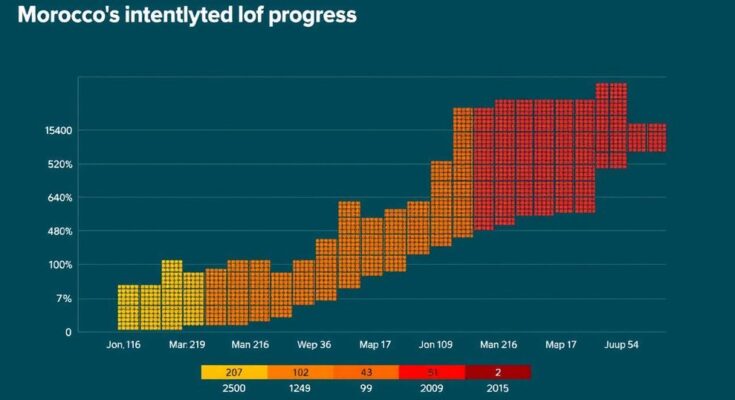Morocco has achieved a notable rank of 73rd in the 2024 Commitment to Reducing Inequality Index, following significant post-earthquake reconstruction efforts. It is recognized as the top riser this year, primarily due to increased spending in public services and education. However, concerns persist about the sustainability of such advancements in the face of global inequality trends.
Morocco has made remarkable strides in the 2024 edition of the Commitment to Reducing Inequality Index, released on October 21 by Oxfam and Development Finance International (DFI). Ranking 73rd out of 164 countries evaluated, Morocco holds the fifth position within the Middle East and North Africa (MENA) region, following Israel, Jordan, Tunisia, and Algeria. Notably, Morocco surpasses countries such as Palestine, Egypt, and Iran within the same region. Among lower-middle-income nations, Morocco ranks 11th, placing just below Uzbekistan and above countries like Bolivia and Egypt. In the broader African context, nations like South Africa, Mauritius, and Lesotho lead the rankings. At a global scale, Norway, Canada, Australia, Germany, and Finland are recognized as the top five. The report examines three key dimensions: public services, taxation, and labor. Morocco ranks 90th for public services, 97th for taxation, yet achieves an impressive 21st place for labor. Morocco’s notable ascent in the rankings stems from increased expenditure related to the reconstruction efforts post the devastating earthquake in September 2023, which tragically resulted in nearly 3,000 fatalities and widespread displacement. According to Oxfam and DFI, Morocco has emerged as a standout contender in this report, reflecting a significant improvement with a +30 change since the previous year. This growth places Morocco ahead of other noteworthy movers such as Malaysia and Spain. Nevertheless, the report issues a cautionary note, indicating that many of this year’s ascending countries, including Morocco, “may not stay there long,” highlighting that Morocco notably climbed 96 places due to its substantial post-earthquake financial response. Furthermore, Morocco is recognized among the top ten nations in terms of educational spending, attributed to a 17% increase in its budget devoted to education. This increase is linked not only to the rebuilding of educational facilities following the earthquake but also to equitable initiatives such as the provision of free school meals and enhancements in early education, aimed at mitigating extreme disparities within Morocco’s educational landscape. On a global scale, the report reveals a worrying trend whereby nine out of ten nations are implementing policies likely to exacerbate economic inequality. It notes that 94% of countries that have received funding from the World Bank and the International Monetary Fund have reduced critical investments in public education, healthcare, and social safety nets within the past two years, a situation especially prevalent in the world’s poorest nations, with 95% of International Development Association (IDA) countries making such cuts.
The Commitment to Reducing Inequality Index gauges the efforts of various countries to address inequality through three dimensions: public services, taxation, and labor. The index serves as an influential tool in assessing government commitments to equitable resource distribution, particularly in the aftermath of crises such as natural disasters. The 2024 edition emphasized the impacts of emergency funding and its role in ameliorating living conditions for the affected.
In conclusion, Morocco’s significant advancement in the 2024 Commitment to Reducing Inequality Index underscores its effective response to the aftermath of the September 2023 earthquake, marked by enhanced public spending and dedicated efforts towards education. While it currently ranks among the leaders, the sustainability of this progress remains uncertain amidst global trends toward rising economic inequality.
Original Source: en.yabiladi.com




